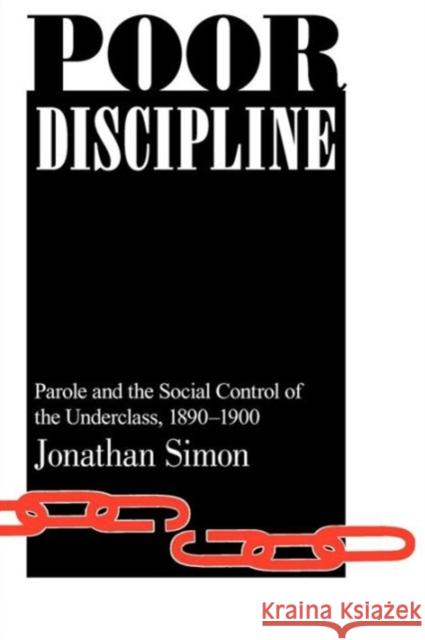Poor Discipline » książka
Poor Discipline
ISBN-13: 9780226758572 / Angielski / Miękka / 1997 / 296 str.
This powerful book reveals how modern strategies of punishment and, by all accounts, their failure relate to political and economic transformations in society at large. Jonathan Simon uses the practice of parole in California as a window to the changing historical understanding of what a corrections system does and how it works. Because California is representative of policies and practices on a national level, Simon explicitly presents his findings within a national framework.
When parole first emerged as a corrections strategy in the nineteenth century, work was supposed to keep ex-prisoners out of trouble. This strategy foundered in the changing economy after World War II. What followed was a rehabilitative strategy, where the clinical expertise of the parole agent replaced the discipline of the industrial labor market in defining and controlling criminal deviance. Today, Simon argues, as drastic changes in the economy have virtually locked out an entire class, rehabilitation has given way to mere management. The effect is isolation of the offender, either in jail or in an underclass community; the result is an escalating cycle of imprisonment, destabilization, and insecurity.
No significant improvement in the current penal crisis can be expected until we better understand the relationship between punishment and social order, a relationship which this book explores in theoretical, historical, and practical detail."











